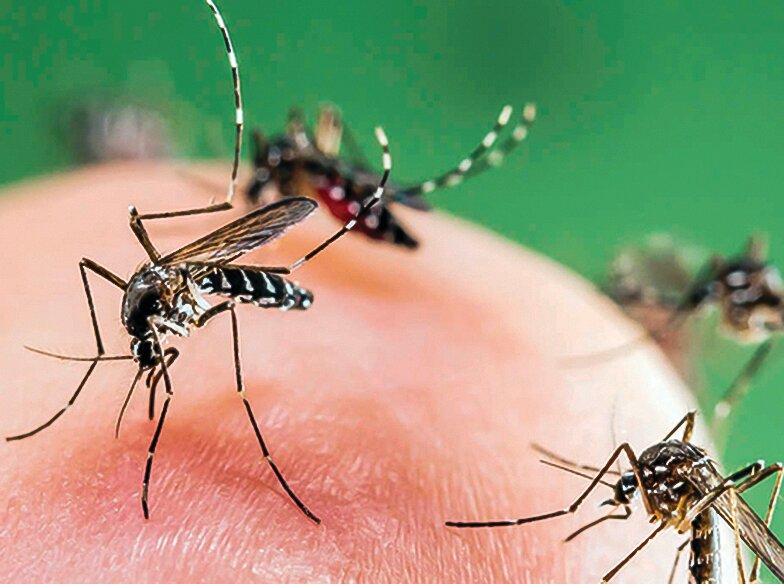Support the Timberjay by making a donation.
Bats are down, mosquitoes are up
And yes, there may be a connection
A 2009 study by a pair of graduate students in Michigan may help to explain why everyone in the North Country seems to be complaining about the clouds of mosquitoes right now. Anyone who lives here, …
This item is available in full to subscribers.
Attention subscribers
To continue reading, you will need to either log in to your subscriber account, or purchase a new subscription.
If you are a current print subscriber, you can set up a free website account and connect your subscription to it by clicking here.
If you are a digital subscriber with an active, online-only subscription then you already have an account here. Just reset your password if you've not yet logged in to your account on this new site.
Otherwise, click here to view your options for subscribing.
Please log in to continue |
Bats are down, mosquitoes are up
And yes, there may be a connection
A 2009 study by a pair of graduate students in Michigan may help to explain why everyone in the North Country seems to be complaining about the clouds of mosquitoes right now.
Anyone who lives here, especially those of us who live in the woods, knows that early June is generally the peak of the mosquito season. They’re a fact of life, but I know I’m not the only one who has been surprised the past few years by what seems to be a particularly robust, occasionally shock and awe-inspiring, mosquito population.
While recently searching this topic online, I came across a study by what were then two graduate students one pursuing entomology, the other evolutionary biology. They were interested in determining whether bats, in this case, northern long-eared bats, could noticeably impact mosquito populations. They tested this hypothesis in an enclosure in a Michigan forest, in which they housed some bats and some mosquitoes, along with some suitable mosquito breeding habitat. They also set up a variety of controls and at the end of the study, they compared the number of mosquito egg clutches laid by mosquitoes within enclosures that included bats, compared to enclosures that did not include bats. Not surprisingly, the researchers found that the number of mosquito egg clutches in the enclosures that included bats were 32 percent lower. The researchers readily acknowledged that the study, which concentrated both bats and mosquitoes, might have exaggerated the effect of the bats’ presence, but it definitely provided objective data that bats are a significant factor in controlling existing mosquito populations as well as the number of eggs they lay for future generations.
Keep in mind, this was a 2009 study undertaken at a time when northern long-eared bats were still very common in the forests of our region in summer. Indeed, this was the bat species that we were most likely to see out in the late evenings swooping around our North Country cabins or lake houses, munching on mosquitoes and other night-flying insects. This, of course, was before whitenose syndrome virtually wiped out the northern long-eared bat, which is now on the endangered species list and possibly headed for extinction.
The loss of this species alone is probably significant in terms of our mosquito population. Every year we experience the spring mosquito hatch and every year, at least in the past, the bats would start whittling away almost immediately. Mosquito numbers would start moderating by mid-July and in a good year they were hardly noticeable by August.
That has since changed. In my experience, the spring hatch is now even larger than in the recent past, most likely because more mosquitoes survived to the egg-laying stage the year before. That means there is simply more mosquito potential on the landscape, just waiting for the aftermath of the snowmelt to spark a new and even worse explosion of the pests than the year before. And, as that population continues to build, year after year, without experiencing the controlling influence of bats, the situation simply continues to worsen.
Unfortunately, there is little reason to expect that our mosquito population won’t continue to worsen in the years to come. Each year, a larger population base is able to lay more eggs and those eggs provide the potential for further population growth the following year. It’s worth considering that a mosquito population that grows ten percent a year, doubles every seven years. Imagine twice as many mosquitoes out there by 2030 as we have today. On second thought, it’s probably better you don’t.






